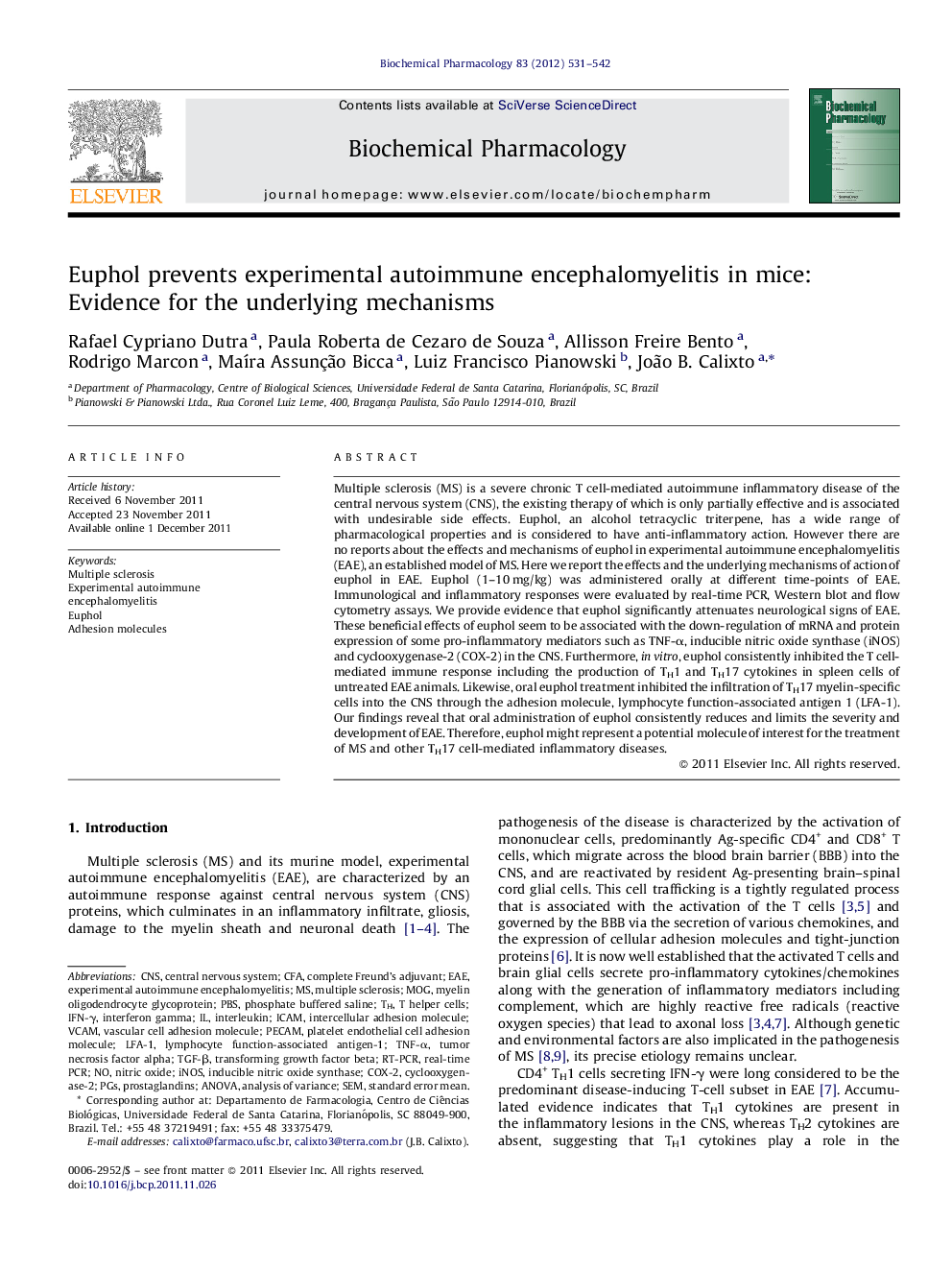| کد مقاله | کد نشریه | سال انتشار | مقاله انگلیسی | نسخه تمام متن |
|---|---|---|---|---|
| 2513617 | 1118425 | 2012 | 12 صفحه PDF | دانلود رایگان |

Multiple sclerosis (MS) is a severe chronic T cell-mediated autoimmune inflammatory disease of the central nervous system (CNS), the existing therapy of which is only partially effective and is associated with undesirable side effects. Euphol, an alcohol tetracyclic triterpene, has a wide range of pharmacological properties and is considered to have anti-inflammatory action. However there are no reports about the effects and mechanisms of euphol in experimental autoimmune encephalomyelitis (EAE), an established model of MS. Here we report the effects and the underlying mechanisms of action of euphol in EAE. Euphol (1–10 mg/kg) was administered orally at different time-points of EAE. Immunological and inflammatory responses were evaluated by real-time PCR, Western blot and flow cytometry assays. We provide evidence that euphol significantly attenuates neurological signs of EAE. These beneficial effects of euphol seem to be associated with the down-regulation of mRNA and protein expression of some pro-inflammatory mediators such as TNF-α, inducible nitric oxide synthase (iNOS) and cyclooxygenase-2 (COX-2) in the CNS. Furthermore, in vitro, euphol consistently inhibited the T cell-mediated immune response including the production of TH1 and TH17 cytokines in spleen cells of untreated EAE animals. Likewise, oral euphol treatment inhibited the infiltration of TH17 myelin-specific cells into the CNS through the adhesion molecule, lymphocyte function-associated antigen 1 (LFA-1). Our findings reveal that oral administration of euphol consistently reduces and limits the severity and development of EAE. Therefore, euphol might represent a potential molecule of interest for the treatment of MS and other TH17 cell-mediated inflammatory diseases.
Euphol effectively ameliorates both the clinical and pathological parameters of EAE, mainly by inhibiting the expression of pro-inflammatory mediators in vitro and in vivo.Figure optionsDownload as PowerPoint slide
Journal: Biochemical Pharmacology - Volume 83, Issue 4, 15 February 2012, Pages 531–542